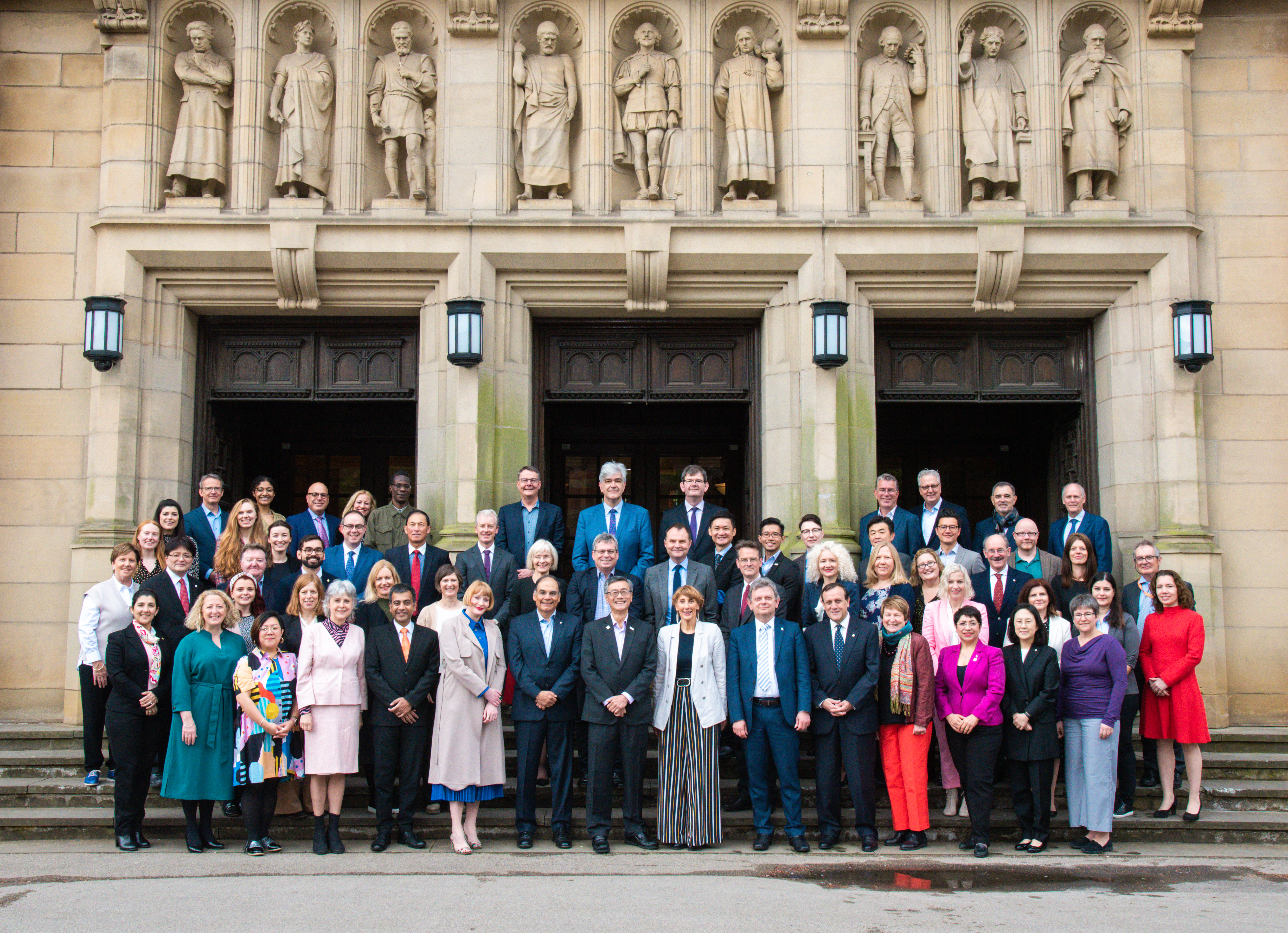
For our colleagues who were able to attend our first post-pandemic AGM in person, it was an exciting occasion. And surprising – because while we had all maintained contact virtually, the experience of being together in Birmingham highlighted just what social beings we are.
Over three days, across meetings, presentations, our Presidential Symposium and social occasions, the issues before us became evident.
As the world moves from the Covid-19 pandemic to Covid-19 being endemic and with a potential new pandemic in the wings, we are at a time of extraordinary and rapid transition.
Universitas 21 naturally views this transition through an international lens. As we enter our 25th year, our global environment has been and is being transformed by the impact of the pandemic, climate change, refugee crises and geopolitical tensions. Widening inequality, increased poverty, political polarisation, and growing nationalism are woven into the fabric of these seismic changes.
The Covid-19 driven shift to virtual education, work and personal connection has radically changed and disrupted traditional ways of learning and work – and there’s no going back to the ways of the past.
Our academic leaders, in their roles at their universities, are responding to these challenges. Yet they know that all these challenges are global – there must be global responses.
At the Presidential Symposium on the Leaders of the Future, we were challenged by OXFAM GB’s CEO Danny Sriskandarajah to move away from entrenched and deeply problematic systems of power and embrace disruption. He asked us to consider the unique role universities can play in responding to our fracturing world and the impact it is having on societies.
Our audience was inspired by four case studies presented by staff and students from UC Chile, HKU and the Universities of Johannesburg and Edinburgh. While diverse examples, the common thread was students as agents of change. Initiatives ranged from the development of courses where students tackled real-world challenges; worked abroad with marginalised peoples; experienced new approaches to international mobility in non-traditional destinations; and learned about the implications of artificial intelligence for the future of work.
For U21 these initiatives reminded us that we must always be values-driven, that our commitment to support young leaders is unwavering and that we must focus on building a sustainable, equitable, collaborative, connected future.
This saw the network recommit to its founding mission of internationalisation and collaboration. It will become more climate-conscious in its operations while recognising the need for, and value of, purposeful travel.
The network will also seek to extend U21’s membership to under-represented regions. It will explore connections with other regional networks and initiatives.
In Birmingham, the pandemic-driven efforts of member universities were acknowledged with the Vice-Rectory for International Affairs at Tecnológico de Monterrey singled out for a U21 Award for its widely applauded global classroom initiative in which students collaborate internationally online.
Our AGM concluded with a strong collegial sense of having weathered an unexpected and difficult pandemic storm and with an eye on the future. That future is about equity, sustainability and diversification.
Right now, while the outlook remains uncertain, members left Birmingham with an unwavering commitment to internationalisation and the positive impact it has across the globe.
- Date
- Author
- Jenny Dixon
